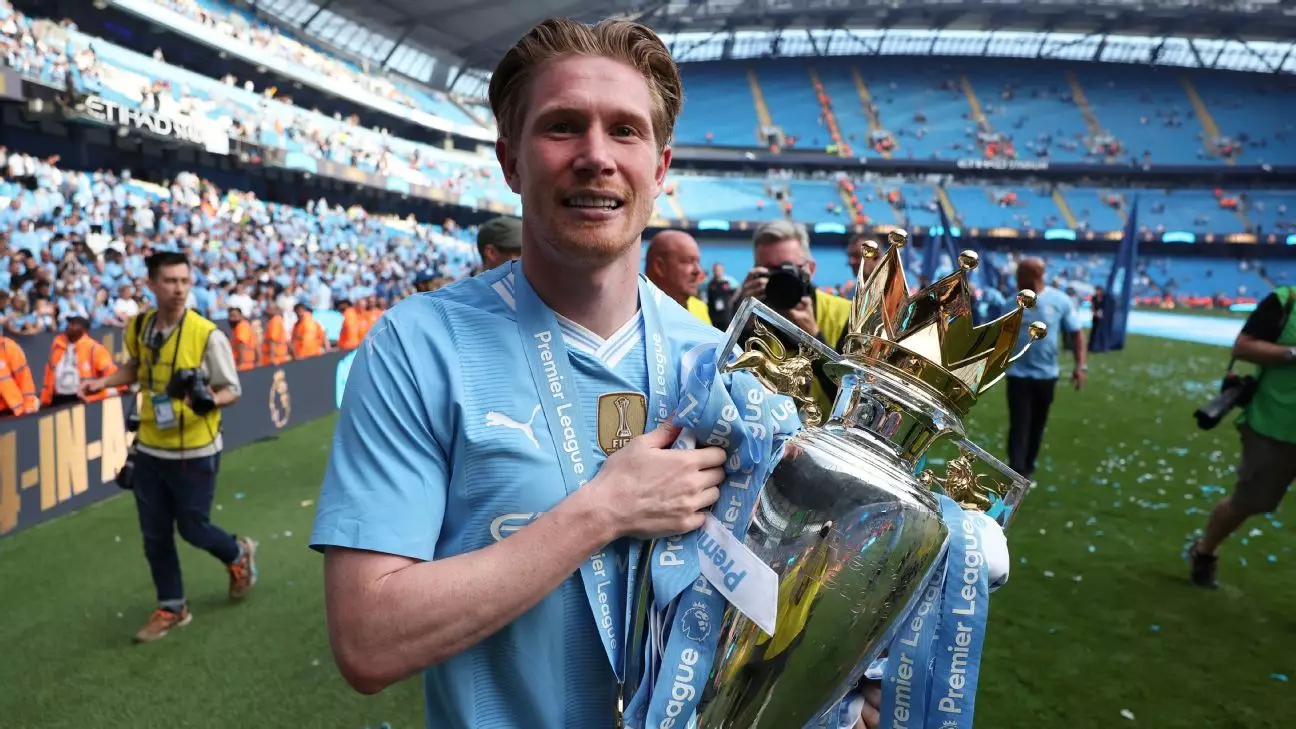Kevin De Bruyne, a pivotal figure in Manchester City’s rise to footballing prominence, recently shared his thoughts on the team’s current struggles and its historical significance. Since joining City in 2015, he has accumulated an impressive medal tally, including six Premier League titles, two FA Cups, five League Cups, and the coveted Champions League trophy. However, he now faces a unique challenge: balancing the weight of those accomplishments with the reality of the club’s inconsistent performance this season.
De Bruyne’s perspective suggests that true appreciation for Manchester City’s achievements may develop only over time. In an interview with ESPN Brasil, he expressed a belief that public perception might evolve as years pass. “Maybe if we have this conversation in 20 years,” he said, “then people will reflect differently.” This raises an interesting point about the nature of sporting success—often, achievements are only recognized in hindsight, especially when immediate performance fluctuates.
The weight of expectation creates a dual pressure for players like De Bruyne. On one hand, fans and media expect victories as a norm; on the other hand, players must navigate the tough realities of competition. As he candidly noted, “People saw us and they see City and they say: ‘they have to win,’ but it’s not that easy to do it.” This statement encapsulates the challenge — while the squad has historically showcased dominance, the mental strain of constant success can lead to unrealistic expectations.
Despite falling behind this season, with City currently sitting fourth and trailing league leaders Liverpool by a significant margin, De Bruyne emphasizes resilience. “Sometimes you have to go through hard moments,” he explained, suggesting a healthy recognition of the cyclical nature of sports. Frequent victories can lead to complacency among both players and supporters, which can skew the perception of how challenging maintaining such high standards truly is.
De Bruyne’s reflections touch on a crucial theme in sports: the value of hardship. He compared the current squad’s challenges to previous seasons where victory was not guaranteed. Contrary to what some may perceive as a disappointing campaign, he views these “different periods” as essential to growth, both collectively and individually. According to him, these experiences can ultimately strengthen the team and enrich their resolve.
As they prepare to face a spirited Newcastle United, currently vying for Champions League qualification alongside City, De Bruyne’s insights reflect a deeper understanding of the game’s mechanics. He advocates for appreciating the journey rather than solely focusing on wins, emphasizing that the process is integral to success.
The conversation surrounding Manchester City’s legacy is ongoing, and De Bruyne’s insightful observations encourage a broader understanding of achievement in football. Winning is undoubtedly critical, but the narratives created in the face of challenges often paint a richer picture of what it means to succeed in the sport. As fans and analysts alike await the outcome of this season, the lessons of perseverance and perspective are likely to resonate well beyond the field, ultimately shaping how future generations perceive this remarkable period in Manchester City’s history.

